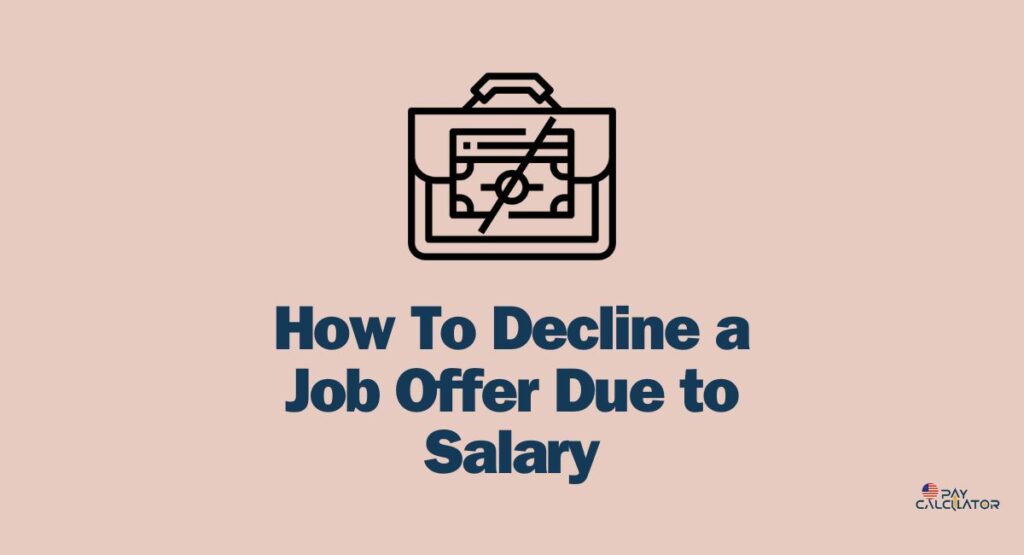
As a company owner or HR professional, effectively managing all your teams is key to your company’s success. One significant aspect of this management is understanding employee compensation, especially when it comes to your salaried employees. In your business, situations may arise where salaried employees miss work. So, you might be wondering whether you can deduct their salary for days not worked, and if so, under what circumstances can their salary be cut?
This article focuses on this scenario. By the time you finish reading this article, you should clearly understand what a salaried employee is, whether you can make deductions from their salary, and if so, under what circumstances this can happen. So, let’s begin. So, first of all, let’s understand what a salaried employee is.
What is the salaried employee?
A salaried employee is a person who receives a fixed amount regardless of the number of hours worked, usually on a monthly or bi-weekly basis; one who is referred to as salaried. This is in contrast to hourly employees, who are paid based on the actual number of hours worked. Salaried employees generally have a set monthly salary which is paid each month. There are some key features of salaried employees as well, which are as follows, let’s understand them too:
Fixed Compensation
Salaried employees receive a predetermined salary that does not fluctuate based on the number of hours worked in a given period. This salary is decided at the time of their interview, determining what their monthly salary will be.
Job Responsibilities
Positions with salaries often involve higher levels of responsibility compared to hourly positions, which include making decisions and requiring specific skills. These roles may encompass managerial, administrative, professional, and technical jobs.
Working Hours
While salaried employees are typically not paid based on the hours worked, they may be expected to work more than 40 hours per week, especially if they hold managerial or professional roles, for which they may occasionally receive bonuses from the company. This inclusion, however, depends on the company’s discretion.
The situation of exemption
In the United States, many salaried employees are classified as exempt under the Fair Labor Standards Act (FLSA), which means they are not entitled to overtime pay for working more than 40 hours per week. This is often due to the nature of their job duties, which typically involve executive, administrative, or professional responsibilities. These are all things that are usually told to them before they join so that no issues arise later.
Stability: Salary-based positions can provide more stable income compared to hourly positions, as they receive a fixed monthly salary regardless of variations in work hours or responsibilities.
Types of Employment and Their Impact on Salary
The types of employment vary; based on the amount of work someone has received, they are provided a salary accordingly. Specifically, we will discuss Salaried Employees and Hourly Employees. So, let’s learn a bit more about them in detail.
Salaried Employees
Salaried employees are generally paid a fixed annual amount, which is divided into regular pay periods. They often enjoy stability in their income, regardless of whether they work more or fewer hours in a given week; they will receive the same salary that was fixed beforehand.
However, let me clearly explain that, based on the company’s policies and applicable laws, if a holiday is taken on a working day, it may affect your salary; but this totally depends on the company’s rules and regulations.
Hourly Employees
On the other hand, employees who work on an hourly basis are paid based on the actual hours they work. A day off simply means that they are not paid because they are not compensated for hours not worked. This system is straightforward but can result in significant income fluctuations.
Can deduct pay from salaried workers for missed time?
The world of salary deductions is becoming very complex; often people are heard saying that their salary for two days or five days was cut this month. This is because permanent employees are kept on a salary basis; if they take even a single day off, it affects the company’s work, and therefore their salary for that day is cut, and someone else works in their place for that day, who then gets paid for that day.
If a salaried employee works any part of the day, they should be paid for the whole day; but sometimes holidays are observed on working days, in which case the salary for one or two days should not be cut; but this totally depends on the company’s rules. However, there are some circumstances where deductions are legally acceptable.
Under what circumstances can the salary of salaried employees be deducted?
Let’s get into a bit of detail about the situations in which employees’ salaries can be cut or are cut.

Absences from Work: Absence from work can be due to various reasons and it can affect the employee’s salary; however, I am not confirming that it will definitely have an effect because each company has different rules and regulations.
- Unpaid Leave: If an employee takes unpaid leave, their salary can be deducted for the days they are absent; this is also practiced in our company. When we take unpaid leave, my salary is also deducted for those days.
- Excessive Paid Leave: If an employee uses paid leave beyond their accrued leave, the amount of the additional leave may be deducted from their salary.
Deductions Required by Law: Some reductions are made according to the company’s rules as well as the laws made by the government, such as:
- Taxes: Deductions for federal, state, and local taxes.
- Garnishments: Deductions ordered by the court for child support, alimony, or other legal judgments.
Voluntary Deductions
The premium for health insurance, retirement plans, and other benefits chosen by the employee is deducted, and the remaining salary is received. If the employee has authorized a deduction for charitable donations from their salary, their salary is received only after making the deduction.
Advance Payments
If your company has an actual plan that compensates employees for lost wages due to illness or disability, and the employee is either not yet eligible for this benefit or their allowance has been exhausted, then in this condition, a deduction from your salary is made for the whole day’s absence.
Disciplinary Suspensions
If you suspend an exempt employee without pay for disciplinary reasons, especially for serious violations of conduct in the workplace, then still your salary for that day is deducted according to my 12 years of experience.
Fair Labor Standards Act (FLSA)
The Fair Labor Standards Act (FLSA) regulates how employees in the United States are compensated. For exempt salaried employees, the FLSA generally requires full salary payment if they perform any work during the workweek. However, in specific circumstances, deductions from their salary can be made for full-day absences, such as when no work is performed on a working day and no paid leave is available; in that condition, the salary for that day may be deducted (totally depending on company rules).
How is the calculation of proportional reduction done?
Calculating proportional deductions in salary generally involves determining the portion of the salary that corresponds to the period or amount to be deducted. We have explained below in a good manner how this is calculated, so let’s understand it properly, or you can also use US Pay Calculator:
Unpaid Leave or Absences
Assume that your annual salary is $60,000, which is paid to you on a monthly basis, and you take 5 unpaid leaves in a month with 22 working days; then you will receive approximately this much.
Monthly Salary= Annual Salary/12
60,000/12 = 5,000$
Daily Salary= Monthly Salary/ Number of working days
5,000/22 ≈227.27
Total Deduction= Daily Salary×Number of Unpaid Leave Days=227.27×5≈1,136.36
Monthly Salary= Monthly Salary−Total Deduction=5,000−1,136.36≈3,863.64
Reduction for Overused Paid Time Off
Assume that the annual salary is the same, and you have worked 3 days more than your earned PTO; then you will receive this much salary; and this is how to calculate it.
Daily Salary= 5,000/22 ≈227.27
Total Deduction= Daily Salary×Excess PTO Days
=227.27×3 ≈681.82
Adjusted Monthly Salary= 5,000−681.82 ≈4,318.18
Reduction Due to Garnishments or Legal Deductions
Assume a monthly salary of $5,000 and a court-ordered garnishment of $200.
Adjusted Monthly Salary= Monthly Salary−Garnishment
=5,000−200=4,800
Reduction for Benefit Contributions
Assume the same monthly salary and the employee contributes $100 to health insurance and $50 to a retirement plan.
Total Deductions= Health Insurance+Retirement Plan
=100+50=150
Adjusted Monthly Salary= 5,000−150=4,850
General Formula for Proportional Reduction
For any general scenario where DDD represents the deduction:
Adjusted Salary= Original Salary−D
Assume an employee with an annual salary of $60,000 who took 2 unpaid leave days in a 20-working-day month:
- Monthly Salary: $5,000
- Daily Salary: $5,000 / 20 = $250
- Total Deduction: 2 days × $250 = $500
- Adjusted Monthly Salary: $5,000 – $500 = $4,500
By following these steps and examples, you can accurately calculate the proportional reduction in salary based on specific circumstances.
Note: The duty of the company is to be completely certain about the circumstances before making any deductions. If you incorrectly deduct from the salary of an exempt employee, it can lead to complications such as reclassification to non-exempt status and potential overtime claims. When in doubt, it is always wise to consult a labor law expert or use resources for guidance.
Conclusion
As a small or medium-sized business employer, understanding when and how you can deduct wages from salaried employees is essential for maintaining compliance and healthy employee relations. Remember, each situation is unique, and staying informed about the latest labor laws and regulations will help you make these decisions. When in doubt, it might be best to avoid making any deductions for absences from salaried employees to maintain legal compliance but also show your appreciation for the value your employees bring.
I hope that after reading this article, you have understood under what conditions your salary can be cut as an employee. As a company owner, you should also understand when and under what circumstances you can cut an employee’s salary. If you have any suggestions or queries, you can comment or contact me. Thanks.





